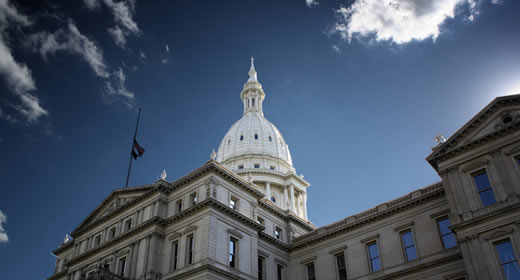
Nearly two-thirds of Michigan’s local leaders believe that the state’s system of funding local government is broken and in need of reform. This belief is shared by a majority of local leaders from jurisdictions large and small, from every region of the state, and from both Republicans and Democrats.
Local leaders were surveyed by the University of Michigan’s Center for Local, State, and Urban Policy (CLOSUP) during its spring 2016 Michigan Public Policy Survey.
“Though the economy has improved significantly since we launched our first survey near the end of the Great Recession, recovery among Michigan’s local governments has not kept pace,” says Tom Ivacko, program administrator at CLOSUP. “Because of that continued economic growth for the state, we were surprised to find more local leaders today think the system of funding is broken than thought so previously.”
By population size, 87 percent of local leaders in the largest jurisdictions, and 60 percent of leaders in the smallest jurisdictions, think the system is broken. By political party, 59 percent of Republican leaders, 72 percent of Democratic leaders, and 80 percent of self-identified independent leaders think the system is broken.
Decreasing state revenue sharing, decreasing property tax revenues, and increasing costs of goods and services likely play a role, says Ivacko. In addition, many local jurisdictions have deferred infrastructure maintenance on roads and water systems. Others have expressed the need to increase spending on public safety.
Local leaders were asked to share their opinions about a variety of fiscal reforms that the state might employ to remedy the situation. Of the 11 reforms presented in the survey, a majority of local officials expressed support for three:
- 82 percent support compelling the state to pay for “unfunded mandates” imposed on local governments;
- 76 percent support restoring full statutory revenue sharing; and
- 57 percent support reforming the Headlee Amendment to eliminate or limit millage rate roll-backs.
While local leaders were most supportive of reforms that would impact the state budget, they were not opposed to raising new local revenues if they had discretion to do so.
CLOSUP and the Citizen’s Research Council of Michigan will present these and other findings, as well as background and comparative policy information, during a 1:00 p.m. webinar on September 13.
For more detail, read the full report, "Local officials say Michigan's system of funding local government is broken, and seek state action to fix it," by Sarah Mills and Thomas Ivacko.